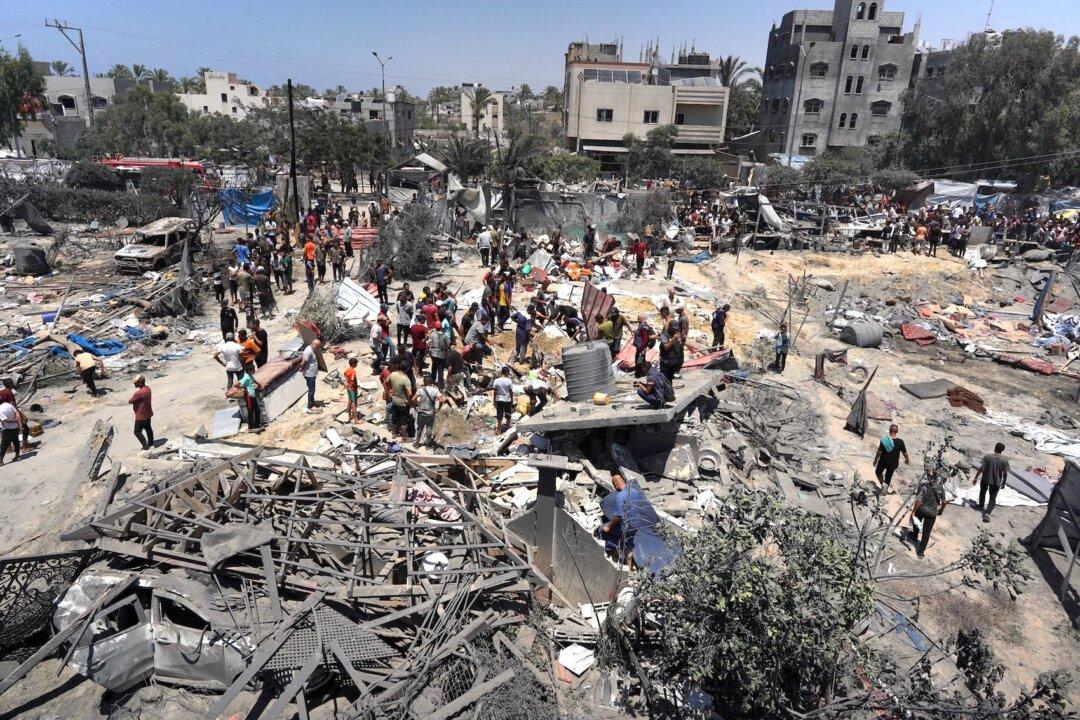The Israeli military has said it killed Mohammed Deif, a commander of the Hamas terrorist group, in a July 13 air strike in the Khan Yunis area of the Gaza Strip.
Israeli military and intelligence officials had suspected Deif was killed in the strike but had not previously been able to corroborate this belief. The Israel Defense Forces (IDF) said on Aug. 1 that new intelligence assessments had confirmed its belief that Deif was killed in the strike.





